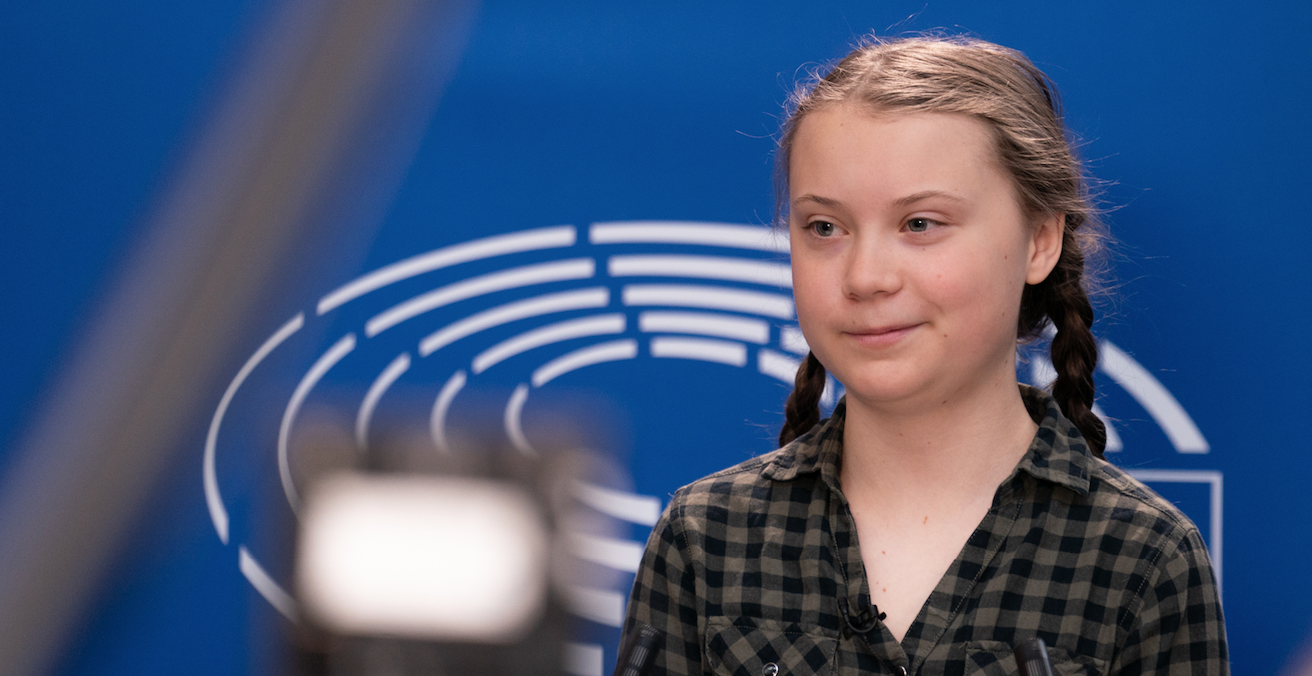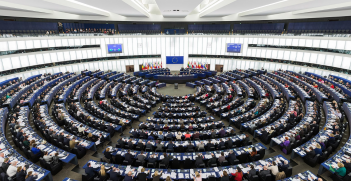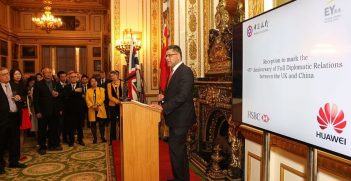Where Is International Leadership When We Need It?

Without better global leadership on climate change our best days are behind us, yet many are turning to a Swedish schoolgirl for leadership rather than the ruling global elite.
“It was the best of times, it was the worst of times.” Most people know the celebrated opening line of Dickens’ A Tale of Two Cities. Many think they are especially apt for our own times. Not everyone remembers the next part of the sentence, however: “it was the age of wisdom, it was the age of foolishness, it was the epoch of belief, it was the epoch of incredulity.” Sadly, they seem even more apposite.
If there is one issue in which foolishness and wisdom can be found in equal measure, it is climate change. At a time when we urgently need a collective response to its implacable and increasingly obvious challenges, many people who should — and who probably do — know better, still remain in furious denial about its very existence. The prospects for a collective recognition of the problem, let alone possible solutions, remain remote and contested as Australia’s recent election result vividly demonstrates.
Readers of an outlet such as this will need little reminding of “the facts,” or persuading that “we” — in this case the human race — really ought to try and do something before it really is too late. As the Intergovernmental Science-Policy Platform on Biodiversity and Ecosystem Services (IPBES) helpfully and depressingly pointed out last week, it already is too late for some one million of the species who share the planet with us.
The sceptics will studiously ignore such reports, of course. Perhaps it will only be 900 thousand species that meet their untimely demise, and maybe it won’t happen quite as rapidly as the doomsayers claim, but the writing is very much on the wall. And it’s clear for even for scientific illiterates like myself. It really is implausible to believe that the entire scientific community — save a handful of attention seekers and professional contrarians — is conspiring to undermine Western civilization and the capitalist mode of production.
But from just listening to President Trump and some of his key advisors, one might be forgiven for thinking they are. Rather ironically, Trump’s principal competitor for the title of most influential international leader — China’s Xi Jinping — seems to recognize just what a problem environmental issues can be. Xi’s no greenie though. On the contrary, it is the spectre of social unrest among an otherwise pliant middle class that concerns China’s “communist” leadership, not the fate of the environment: unless you’re a cuddly panda, of course.
To be fair, international cooperation and “global governance” is hard at the best of times. You can make a pretty good argument for saying that these definitely aren’t. National interests continue to shape global politics, and authoritarians with little enthusiasm for international cooperation or democracy are on the rise. In such circumstances, it’s despair, passivity or resignation are understandable, but regrettable – especially among the young.
And yet, hope springs eternal. In the UK — currently no one’s ideas of an exemplary and well-run polity — the newly formed ‘Extinction Rebellion’ has rapidly compelled politicians to declare a “climate emergency”. Cynics might argue it’s because British politics is such a shambles that such rhetorical flourishes are attractive for politicians who won’t have to actually do anything about them.
Perhaps so. But it does seem as if “we” — in this case those of us fortunate enough to have some sense of what’s going on in the natural and political worlds — may have reached a tipping point. Not only is the evidence of climate change becoming to difficult to ignore or dismiss, but new forms of much needed leadership seem to be appearing, which are compelling at least some of the older forms to take notice.
No more surprising or influential example of this phenomenon can be found than Greta Thunberg, the Swedish schoolgirl who helped spark a global movement. Her address to the plutocrats at Davos was noteworthy both for its clarity and its impact. Whether this had any lasting effect on the world’s super-wealthy as they flew off in their private jets is another question, but many other people did take notice.
There is one compelling reason why Ms Thunberg has had such an impact: her youth. Her generation “gets” climate change in a way that the gerontocracy that runs much of the world simply doesn’t. By the time Greta and her peers are Trump’s age it will be 2075. Without serious and effective action to address climate change in the interim the world may be unrecognizable and unliveable for many of its inhabitants. Crises caused by food shortages, rising sea levels and — of course — large-scale migration are likely to make those of our own time look like the good old days.
And for all our problems, these are the good old days: or as good as they are ever likely to be again without decisive action and international leadership. Don’t hold your breath, though: unless you’re living in Beijing or New Delhi, of course. The fact that my current political hero is a 16-year-old schoolgirl tells you all you need to know about the global ruling class.
Mark Beeson is the AIIA’s Research Chair and author of Environmental Populism: The Politics of Survival in the Anthropocene.
This article is published under a Creative Commons Licence and may be republished with attribution.





